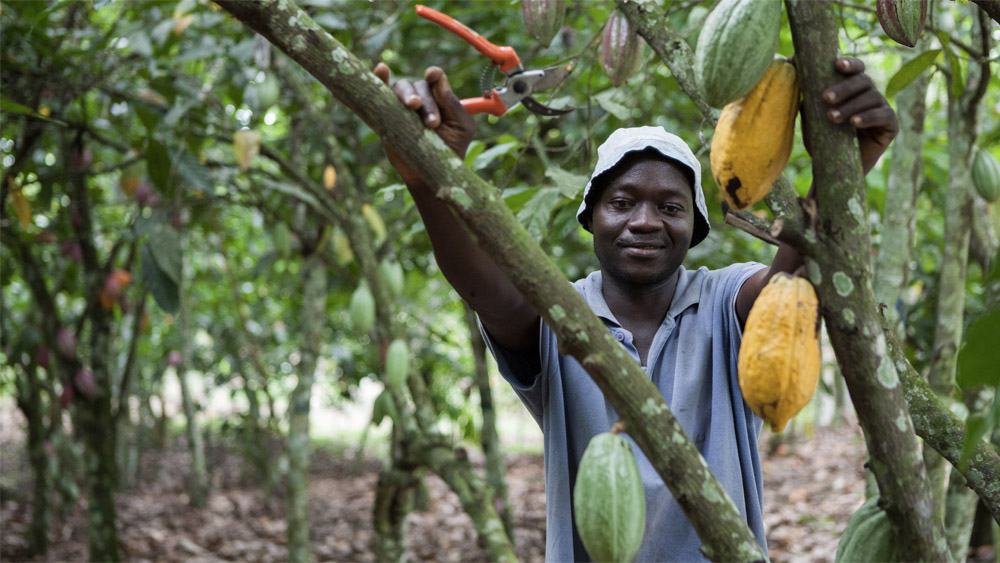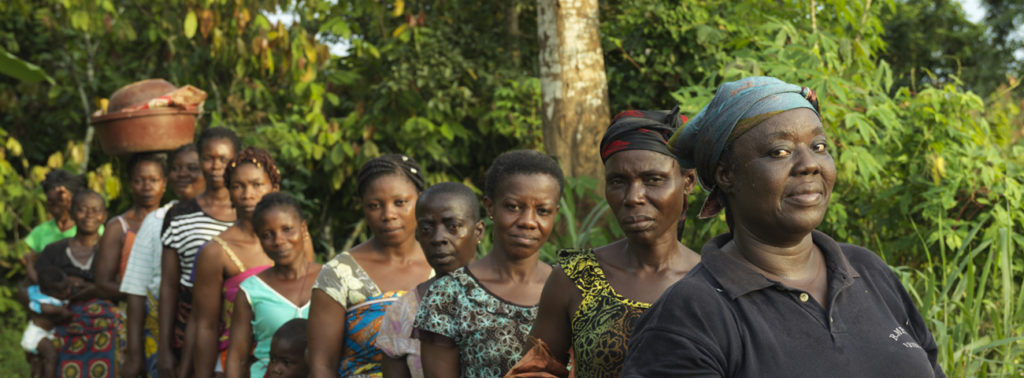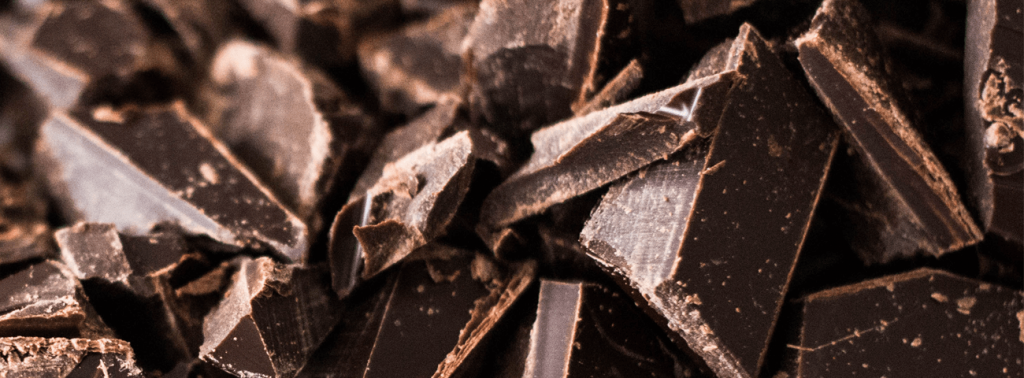Behind the delectable world of chocolate, six million people worldwide rely on cocoa farming for a living.
Fairtrade has breathed a new lease of life into entire cocoa farming communities.
1. Green & Black’s chocolate bar was the first Fairtrade product in the UK
In 1994, Green & Black’s Maya Gold chocolate bar became the first Fairtrade-certified product in the UK.
Based on a traditional cocoa-spiced Mayan drink, it set the trend for single-origin chocolate whilst achieving a great write-up from foodies, including the celebrity chef Hugh Fearnley-Whittingstall.
Read more about Maya Gold on Green & Black’s website
2. Many cocoa farmers have never tasted chocolate
Most cocoa farmers have never tasted chocolate, but farmers from a Fairtrade certified co-operative in Ghana own 44% of the Divine chocolate company.
Launched in 1998, it went down in history as the first farmer-owned confectionery brand in the UK.
Find out more about Divine Chocolate.

3. Cocoa can only grow well in very specific conditions
Cocoa is produced in tropical environments in a belt between 10ºN and 10ºS of the Equator.
The ideal climate for growing cocoa is hot, rainy, and tropical, with lush vegetation to provide shade for the cocoa trees.
Ghana and Côte d’Ivoire are the top selling countries, with Côte d’Ivoire supplying 40% of the global trade.
4. It takes around 5 years for cocoa trees to yield pods
With proper care, cocoa trees begin to yield pods at peak production levels by the fifth year and they can continue at this level for 10 years.
But for all this hard work, cocoa farmers gain very little from a very profitable global cocoa trade.

5. Most cocoa farmers earn less than $2 a day
Most cocoa farmers in Ghana and Côte d’Ivoire live on less than a $2 a day.
Poverty, and its many related issues such as child labour, is the key challenge faced by cocoa growing communities.
With Fairtrade sales, farmer co-operatives receive the Fairtrade Premium, an additional sum which they can choose to spend on improving the quality and productivity of their farms, to increase incomes.
Meet cocoa farmers in Côte d’Ivoire to find out more.
6. The average age of a cocoa farmer is over 50
The average age of a cocoa farmer is now over 50 because the younger generation cannot be attracted to the profession as the benefits are so poor.
7. Two-thirds of Fairtrade cocoa farmers are women
In Côte d’Ivoire women make up just over two thirds of the cocoa labour force, but only own a quarter of cocoa farms. The land many women work is held in their husbands’ names.
Find out more about these women cocoa farmers in our long read ‘The New Queens of Cocoa‘ which shows the challenges they face and how they are increasingly taking charge of their own futures.

8. Education is key to the future of cocoa farming communities
Fairtrade Africa currently trains cocoa farmers in financial management, governance, good agricultural practices, gender equality and child labour.
This forms part of the Fairtrade West Africa Cocoa Program, which started in 2016 and is now in its 7th year.
Read: Training the key to a better future for West African cocoa farmers
Read: The Invisible women behind our chocolate
9. Fairtrade chocolate makes up 12% of chocolate sales in the UK
Fairtrade chocolate accounts for 12% of total sales in the UK – and the trend for Fairtrade-certified cocoa treats is growing.
See the Global Cocoa Market 2016-2020
10. There are hundreds of Fairtrade chocolate products in the UK
There are lots of different types of chocolate products bearing the FAIRTRADE Mark in the UK, including premium, conventional, organic, gluten free and vegan.
Find out where to buy Fairtrade chocolate.
Updated October 2023.
